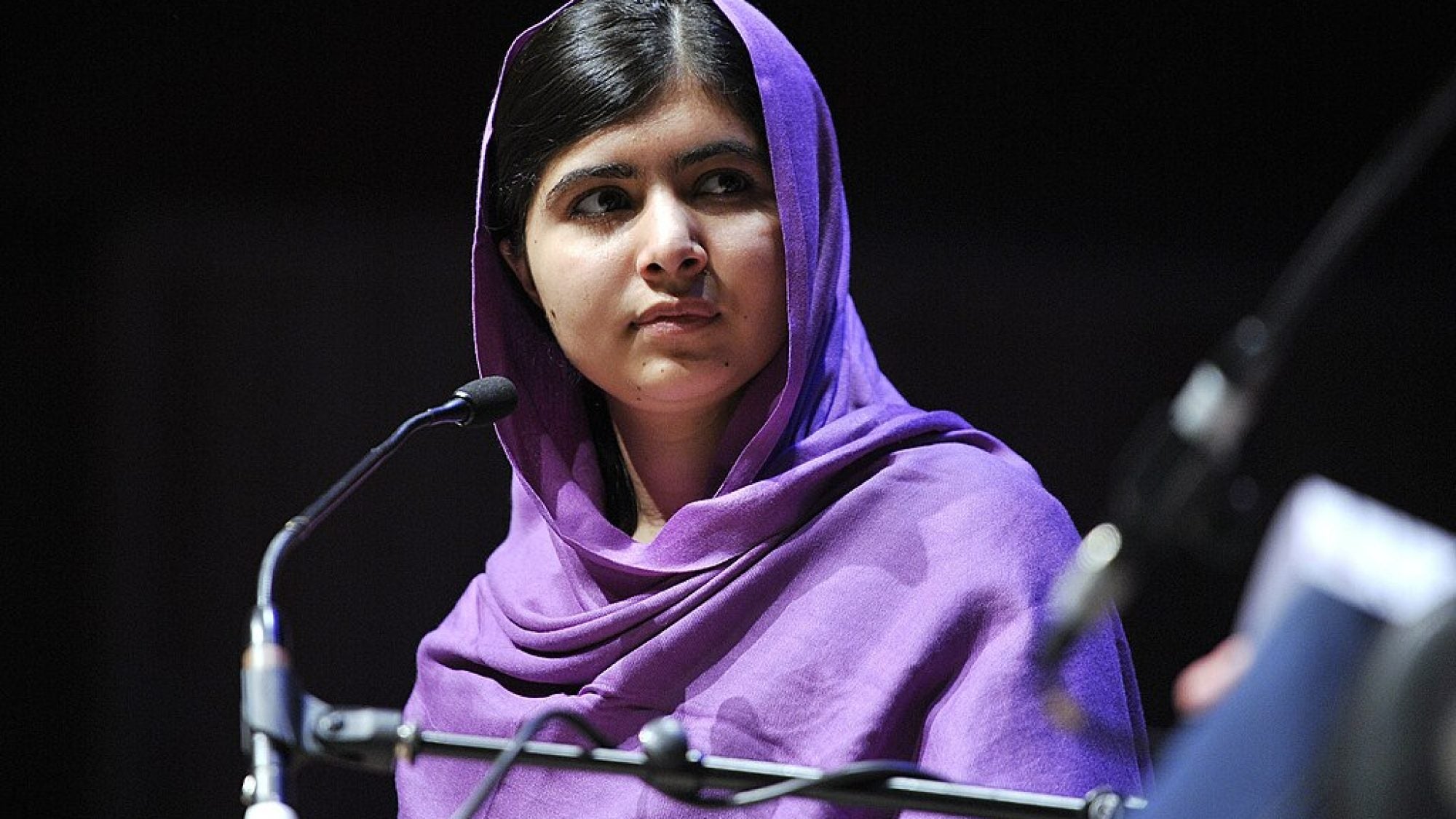Malala has fought long and hard for her rights. Beginning at the age of just 11, in the face of a 2009 decree by the Pakistani Taliban banning female education, Malala spoke out via a blog and a documentary, demanding her rights and those of other Pakistani girls. “I have the right of education,” she said in a 2011 interview with CNN. “I have the right to play. I have the right to sing. I have the right to talk. I have the right to go to market. I have the right to speak up.” Her father, the director of a school that admitted girls, was very proud of her efforts. Kainat, a classmate of Malala’s who was also wounded, supports Malala in her efforts and said after the attacks, “I want to tell all girls to continue their mission to get an education.”
Malala has become a symbol for the ongoing, and at times bloody, fight to educate girls throughout the developing world, particularly in Muslim areas. The horror that accompanies the injury of a child is multiplied in this case due to the premeditated nature of the attack. The remarkable aspect of this story, however, is that Malala spoke out in the first place, with the support of her family, knowing what could happen to her. She did not seem to be afraid. She was fighting for her life, her future, before she was shot, before the Taliban tried to silence her, and she showed more courage than any adult. She told other girls to fight too, and asked educators to fight to educate girls. Malala realized early on the vital importance of an education for her and for all girls in Pakistan and she broadcast this belief to her country and beyond. And the world heard her.
Despite the destruction of so many local schools following the Pakistani edict against girls’ education, the girls continued to be educated. Malala inspired her father, a school director, to keep his school open despite the Taliban’s threat to shut it down and destroy it like so many others. It was very clear to Malala that education is power, of which girls and women have so little in her country. Malala and her classmate Kainat are outstandingly courageous girls and have become the voices for those girls who cannot speak out, those who have been traumatized into silence. These two young school girls have seized the power to speak out and the world is cheering them on with prayers and hope.
Malala is responding positively to treatment, according to a hospital report released on Friday, October 19, 2012, and is now able to stand with assistance and write. Malala’s father, Ziauddin Yousafzai, during a press conference broadcast on Pakistani television on Thursday, October 25, 2012, announced that he and Malala’s mother have spoken with Malala by telephone and hope to visit her soon in the UK. The Pakistani Minister of the Interior Rehman Malik, also in attendance at the press conference, promised to protect Malala and her family when they return to Pakistan. Ziauddin Yousaufzai indicated that the family had no plans to seek asylum in another country.
No matter what happens to Malala, we know that her voice will not be silenced because her cry of “I have a right to talk” has been taken up around the world. With Malala’s classmates, including Kainat, backing her up, Malala’s voice will never be silenced.
Lisa A. Doan received an MALS in International Affairs from Georgetown University in 2011.
This is an archived article. While every effort is made to conserve hyperlinks and information, GJIA’s archived content sources online content between 2011 – 2019 which may no longer be accessible or correct.
Image Credit: Southbank Centre, Wikimedia Commons

